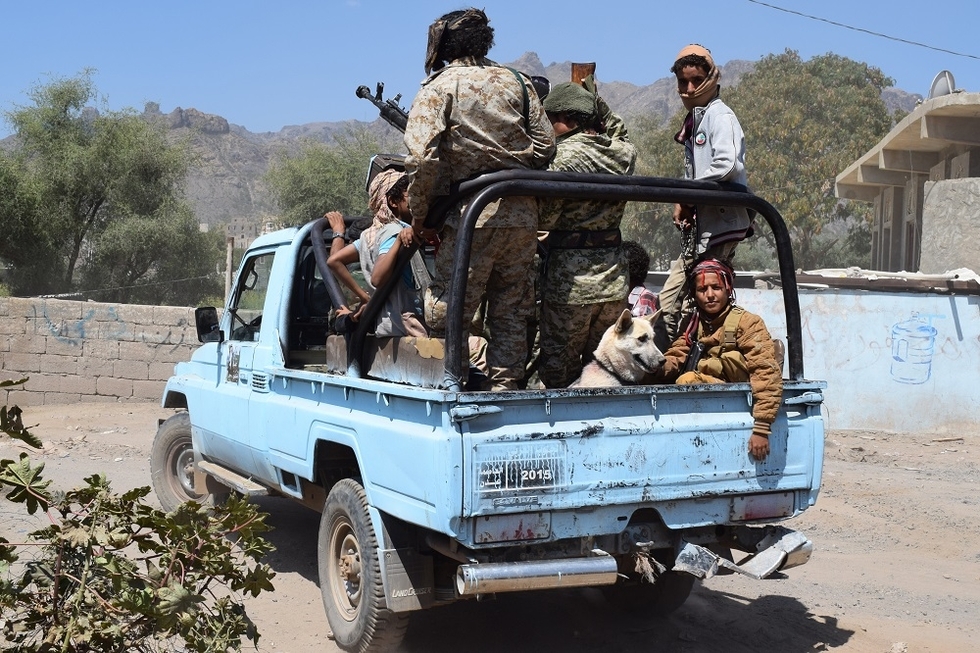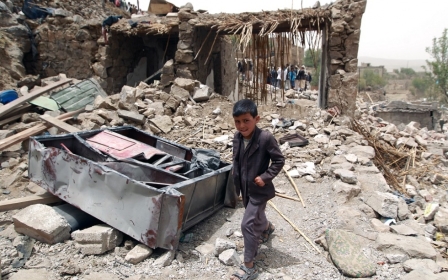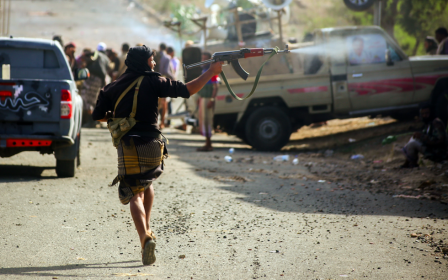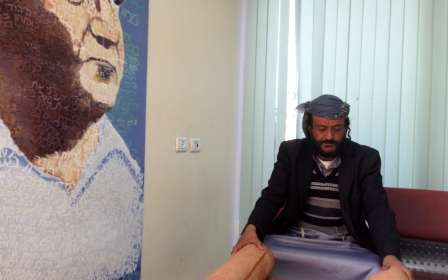Three suicide bombings rock Yemen's Aden

At least 27 people, including 10 civilians, were killed on Friday when three suicide blasts ripped through Yemen's second city of Aden, officials said.
The car bombings hit checkpoints of Yemeni loyalist forces in the southern city that serves as a temporary home for the government, and were followed by an attempt to attack a nearby base of the Saudi-led Arab pro-government coalition that recently began targeting the Islamic State group (IS) in southern Yemen.
Two bombs exploded simultaneously at separate checkpoints in Shaab district, on the western outskirts of Aden, while a third planted in an ambulance was detonated at checkpoint near Mansura, in central Aden, the official said.
IS claimed responsibility for the bombings, with its affiliated Amaq news agency saying in an online report: "IS fighters have launched three martyrdom operations and an attack on a base of the coalition in Aden."
The blasts were a precursor to the attack on the headquarters of the Saudi-led coalition forces in Aden's Buraiga district, a security official from Aden's Military Command told Xinhua on condition of anonymity.
Apache helicopters belonging to the coalition attacked IS positions in the surrounding area as fighters attempted to advance toward the base.
The attacks came a year after the coalition launched an air campaign against Shia rebels in support of internationally backed President Abedrabbo Mansour Hadi.
The coalition began targeting IS in Aden for the first time last week.
A US air strike Tuesday on an al-Qaeda training camp in the southeastern province of Hadramawt killed more than 70 fighters in a major blow to that group.
Al-Qaeda's branch in Yemen is considered by Washington to be the most dangerous affiliate of the organisation.
The Arab coalition launched its air campaign against the Houthis last year as the Iran-backed rebels advanced on Hadi's refuge in Aden and forced him to flee to Riyadh.
Loyalists have since managed to drive the rebels out of Aden and four other southern provinces, thanks to the military support of the coalition.
But the coalition has failed to deal a decisive blow to the rebels and their allies, who continue to control large parts of Yemen, including the capital Sanaa, which they seized in September 2014.
The United Nations says about 6,300 people have been killed since March last year, with civilians accounting for more than half.
New hopes for a breakthrough in the conflict surfaced on Wednesday when UN envoy Ismail Ould Cheikh Ahmed said warring parties had agreed on a ceasefire that would be observed before peace talks start on April 18.
Previous negotiations have failed and several ceasefires were never respected.
New MEE newsletter: Jerusalem Dispatch
Sign up to get the latest insights and analysis on Israel-Palestine, alongside Turkey Unpacked and other MEE newsletters
Middle East Eye delivers independent and unrivalled coverage and analysis of the Middle East, North Africa and beyond. To learn more about republishing this content and the associated fees, please fill out this form. More about MEE can be found here.




